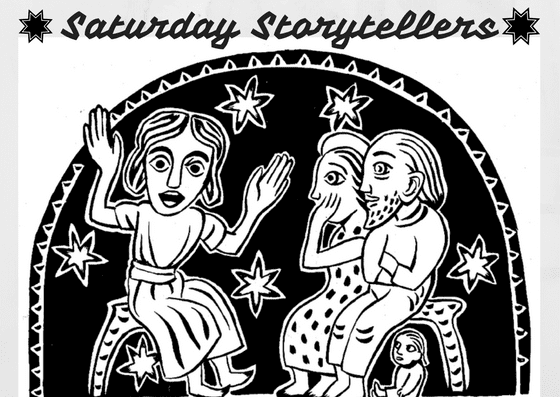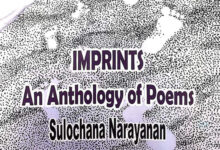Ninety-three per cent rapes in India were committed by a person known to the victim, according to a 2017 report by the NCRB[i]. Incest accounts for a substantial percentage. Prof Nandini’s story is based on incest. How does an incest victim deal with guilt, shame and more – an exclusive for Different Truths.

An elusive orgasm that was indefinable, subtle, intangible, indescribable, fulfilling, and soul-searching. She wanted to experience that every time she had those rare intimacies with her husband. But she was far from getting that — always because two creepy hands, a stringent body and some distant fishy odours crawled into her cataleptic and subconscious mind during those moments.
Can one even blame her for thinking about those while having sex with her husband? I suppose one cannot.
Jhumpa was a cute little girl, all of sixteen when Mai (her mother) got into the wheelchair due to paralysis of her lower limbs. Babai (Jhumpa’s father) was in his late thirties, and he had to bear the grunt of serving an ailing wife and looking after a teenage daughter in the small town of Sonagachi, a few kilometres away from Kolkata.
Sonagachi was close to nature because it was a forest with tall trees.
Sonagachi ace close to nature because it was a forest with tall trees. It was so untouched by city life that even the roads here were dirt tracks instead of proper paved ones. Jackals, spotted deer, elephants, foxes, and many kinds of colourful birds, including parrots, kingfishers, ducks, and woodpeckers, inhabited the area. This was also the largest red-light area in Asia.
In Bengali, Sona Gachi means ‘Tree of Gold’. According to some folklore, during the early days of Calcutta, the area was the run of a notorious dacoit named Sanaullah, who lived with his mother. On his death, the grief-stricken woman heard a voice coming from their hut, saying, ‘Mother, don’t cry. I have become a Gazi’, and thus the legend of Sona Gazi came into existence. The mother constructed a mosque to remember her son, although it fell into poor condition within no time. Then Sona Gazi was transformed into Sonagachi.
The documentary Born into Brothels: Calcutta’s Red-Light Kids won the Oscar for best documentary award in 2005.
The documentary Born into Brothels: Calcutta’s Red-Light Kids won the Oscar for best documentary award in 2005. It illustrated the lives of children born to prostitutes in Sonagachi. Born into Brothels talked beyond the well-known prostitute-clogged streets and about the homes of the children who lived in the foulest place. A ten-year-old boy named Avijit’s natural stimulating compositions through the lens got him an invitation to the World Press Photo Foundation in Amsterdam, and he was from Sonagachi.
Trailer documental “Born into Brothels” – YouTube
But Jhumpa was far from all those things happening around her, being dedicated to her preparations for the NEET for Medical Science. All she wanted was – to become a doctor. When did Mai’s partial physical paralysis become a metaphorical paralysis for Jhumpa’s life? Even Jhumpa couldn’t realise. Everything happened so fast, so erratic.
Then, Jhumpa was good friends with Grace and me. Jhumpa and I were from Hindu/Brahmin families, and Grace was a steadfast Christian. We used to go to school together, play and study together, and my late father and Grace’s father were school teachers in Sonagachi.
One day Jhumpa stopped coming to school, and bizarrely, she got completely cut off from us. Her Babai and Mai didn’t even allow us to meet her. There was no Internet, no Whatsapp or Facebook when we were kids. Grace was more intelligent than me on any given day. Thus she tried to get in touch with Jhumpa by hook or crook. To my dismay, my father got a transfer from that town, and I had to leave that school, consequently, Grace, Jhumpa and everyone else.
I wrote letters to Grace for the first few months, asking after Jhumpa. But there was no news of her, ever. And no news was no good news!
With time, my childhood friends became distant memories…
We grew up. With time, my childhood friends became distant memories, though Jhumpa remained a persistent ache in the secret chamber of my heart. I left India with a fellowship, did my PhD in America and returned to join as a professor at an Indian university in the capital. In 2020, I visited Kerala to meet Grace, my childhood best buddy, after meeting her again on Facebook. Grace had left Sonagachi after I left, and she had settled down in Kochi. Our happiness knew no bounds. Finding Grace was like reviving some lost paragon, a hidden treasure. We met like wild streams in a rainforest.
That summer vacation was full of excitement, enthusiasm, love, togetherness, happiness and sudden heartbreak!
On the first day of our meeting, I asked Grace if she knew the whereabouts of Jhumpa. Grace avoided the question and took me to show her a big farmhouse where she did organic farming. Her two sons got along well with my son, and we became too busy handling the three naughty boys while we had so much to catch up on after years of separation.
After a week, one early morning, I heard Grace talking over the phone in a suppressed voice. She was whispering, “Jhumpa, have you lost your mind? Once again, you are going to that hell! I will not protect you this time if you do it, especially when Ninny is here after years. The poor girl has been asking after you, and I am avoiding you. She can’t handle this; you know she is hypersensitive.”
The next moment, I was face to face with Grace, with legitimate questions about Jhumpa and her whereabouts. Grace, of course, couldn’t avoid those any further.
***
In 2005 after I left Sonagachi, Grace became lonelier than ever as Jhumpa, too, had stopped coming to the school. She had joined some correspondence courses to complete her education from home. Grace’s father sent her to a hostel in Kerala to do her college and university education, and she, too, fell out of touch with Jhumpa. But in 2008, when she went to Sonagachi to spend the summer vacation with her parents, she learned that Jhumpa’s parents had been to their village for a month or two to perform the death rituals of their parents or in-laws. Jhumpa was alone with the maid, who was strictly instructed not to let her go out. That is when Grace discreetly got into her house with her cousins, Remchaso, Alwin and Thomas, who were officers in the local church and were doing well. To her utter disappointment, she found Jhumpa in a rundown, ramshackle state. She looked like a fully grown-up woman, eyes lost in thoughts, nothing like a girl of eighteen or nineteen. Her demeanour disturbed Grace. She bribed the maid handsomely and took Jhumpa out of her house arrest.
Jhumpa wasn’t comfortable in the streets; after almost three years, she had come out.
Jhumpa wasn’t comfortable in the streets; after almost three years, she had come out. Grace and her brothers made her comfortable, offered her lovely delicacies in a restaurant, did some shopping, and then took her to the church for prayer. Jhumpa was happy; she was astonished to see people’s freedom there. She couldn’t understand the freedom of speech, being a caged bird. There was this Confession Box in a corner where everyone was talking their heart out, with probably no one listening to the conversation between the person and the God that s/he believed. After everyone had finished their prayers and confession, after the Carols and the chants had calmed Jhumpa, she agreed to go to the Confession Box and chat with her personal God, if there was any.
Grace confessed to me that she had inconspicuously fitted a recorder there with the help of her brothers. And then the epiphany for us, with what Jhumpa spoke there. It was like a bombshell, devastating, like a lightning bolt.
Jhumpa spoke, rather she keened her heart out in the Confession Box, “Oh Lord of this beautiful, tranquil place, I want to share my story with you here. I am confused; I don’t see a road ahead of this tunnel. When I was in class XI, Mai was in a wheelchair, and my Babai had to work the whole day. My parents were ardent devotees of some ferocious-looking Goddess whose temple was in the basement of our house. Babai performed pujas there for hours every day. They did Kumari Puja and Kumari Sadhna. Babai and Mai told me I was the offering/Prasada of the Goddess and I was a sacred girl. That is why they stopped me from going to school, and that night Babai did an entire puja for me when Mai was chanting the mantra. Once offered as Prasada to the Goddess, Babai took me to the bathroom to cleanse me of worldly sins. He bathed me in his own hands like never before. It was uneasy initially, but he explained that he was the devotee/Sadhak of the Goddess and I was the Prasada, so I need not feel shy and should allow him to do it by just closing my eyes in surrender to the Goddess. I did as Babai instructed and guided. Mai was asleep in her room. Babai bathed me, touched my breasts and genitals tenderly, and then vigorously rushed into me when I bled so much. It pained me; it was very hurtful. I cried; Babai consoled me, put me in his arms and put me to sleep after the act. Since that night, every night, he follows the ritual of bathing me, his Prasada, and repeats everything. And I don’t mind it anymore. I like whatever he does to my body; these days, I don’t get sleep unless Babai does it and puts me to sleep. But what I don’t like here is—Babai and Mai don’t allow me to talk to anyone, not even the maid. I am not allowed to go out; I miss my friends, and I miss my school. I am no longer preparing for the medical entrance. All those dreams I had forgotten. Today I am relieved after confessing before you, whomever you are. Grace told me that if we confess before you, our worries end. Oh, tranquil god, please tell me, am I going to have a secluded, secret, clandestine existence for the rest of my life? Shall I never experience freedom like Grace and others out there?”
Jhumpa came out with tears…
Jhumpa came out with tears; Grace, Remchaso, Alwin and Thomas were burning with anger to hear this incest story of disgrace and shame. It was apparent that the unending consensual incest had set an increasingly ugly chain of events in motion in an innocent girl’s life. The worst part was that she didn’t consider this unusual, obnoxious, or objectionable. She was too tender a girl when she was introduced to this underground world of aenigmas.
Grace, Remchaso, Alwin and Thomas met the church authorities and devised a plan to salvage the ill-fated girl. Luck was on their side, as Jhumpa’s parents were in their village for two months. Grace counselled Jhumpa day and night about the normal man-woman and father-daughter relationship. Jhumpa realised she was trapped in a bottomless pit, and only Grace could take her out of it. Jhumpa dreamt of becoming a nurse, if not a doctor. She cooperated and was baptised into the Christian faith within a month. Her visa was applied for as an independent adult with a special recommendation from the church that she was keen on going to the US along with three other staff nurses from the church to serve underprivileged children in America, which was granted. She flew three days before her parents returned.
Babai was mad at the maid; of course, he threatened Grace to file a complaint. Grace was ready with the audio recording, based on which the man would have lost his job on the charge of promiscuity with his daughter and prolonged child abuse. His wife asked him to keep quiet for some time as she didn’t want to lose her caregiver.
Jhumpa had a good life in America.
Jhumpa had a good life in America. She did her Bachelor of Science in Nursing there and dedicated her days to social service.
Anyway, her nights were difficult. She thought about the serpentine creeping of two male hands on her body, bathing her, interleaving her contours with restless respite.
She met Abraham, her colleague, who seemed attracted to her. He befriended her and told her about his orphanage in Kerala, India, where he got an education and support to come to the US. He was friendly and kind to her; he had some idea about her turbulent past, though he didn’t know exactly what that was. He believed that time was the greatest healer, and it must have healed Jhumpa by now, given her kind and serene persona.
In due course, he proposed to her, and they got married.
Grace was pleased with the turn of events in Jhumpa’s life. She was relieved that she could rescue a girl and facilitated her to lead a good life. She called Jhumpa’s Babai and shared this news; he sounded furious and helpless. He cursed Grace over the phone; Grace smiled triumphantly.
But things were more complex.
Initially, Abraham thought that Jhumpa was shy and an introvert. Thus, he waited patiently for the consummation of their marriage. But Jhumpa locked her room every night after dinner, touched herself passionately, whispering something, and muttering. Her body was not prepared to accept the touch of any other male. Her body had its chemistry. Abraham couldn’t understand this. But he knew that Jhumpa didn’t like physical closeness with him. His only desire was to give her an orgasm, a massive, fulfilling one. He cuddled her, did the foreplay with care and love, tried to take her to that trance where the woman desires her man—but everything failed.
Not that Jhumpa complained when Abraham failed and gave up.
Not that Jhumpa complained when Abraham failed and gave up. She caressed his head for a few minutes, put him to restless sleep, and remained awake. During those nights, Abraham noticed that Jhumpa looked at the ceiling night long, and when she fell asleep, two dry teardrops would be lingering on her cheeks or eyelids. She was insomniac, nonchalant, monotonous.
When Abraham complained over the phone, Grace asked him to wait patiently. However, she never narrated the long history of Jhumpa, having a full-fledged, compulsive, obsessive sexual relationship with her father. She couldn’t gather the courage to relate this to a husband who loved his wife dearly.
Abraham tried to ask Jhumpa the reason behind her aversion to him. Jhumpa only cried; she could never tell him why because she loved him too. He was her friend and companion, but her body couldn’t accept his touch. A couple of times, Jhumpa quietly lay down beside Abraham, eyes tightly closed, when he had sex with her cold body. Abraham hated this—it was like necrophilia. And then, he completely stopped going near her. They just lived in one house like two guests who had nothing to do with each other. He stopped asking her questions. Some nights, even he stopped coming home.
Jhumpa felt lost once again. Her existential, empirical questions about life troubled her. She wanted a break and called Grace to ask if she could come to her place and spend a few days with her. Grace asked her to work on her marriage instead and spend quality time with Abraham. Then Jhumpa threatened her, “If you are not willing to keep me for a few days with you, I would rather go to Babai’s place and resolve with him.”
That was when I caught Grace reprimanding her over the phone early morning.
I was petrified and shocked by this unwarranted story of my long-lost friend.
I was petrified and shocked by this unwarranted story of my long-lost friend. I probed into our past and thought about the unfair, raw deal life had done with her. Was her Babai a paedophile? A narcissist? Womaniser? Sick man? Did his wife’s inability to have an intimate relationship give him the freedom to abuse his girl child and ruin her life? Was her Mai so selfish that to shield her future with her ‘provider’ and caretaker, she became a party to her husband’s vicious plan and sacrificed her daughter’s life? I somehow blamed myself for leaving Sonagachi when Jhumpa needed her friends. I told Grace, “Let us save this girl, Grace! We cannot sulk now, especially when she is in grief. She needs us.”
The following day, Jhumpa was with us in Kerala. At first, she didn’t talk much; we just had casual exchanges. Grace told her that I knew it all. Jhumpa wasn’t very comfortable with this. I tried to make her easy and diverted the topic to tourism, politics, food, fabrics, shopping, friends, and anything in general. I invited her to spend a few days with me in Delhi. Our children played with her. Jhumpa tried to cooperate, but her eyes were always lost on the horizon. When we went out on long drives, Grace and I sat in the front, and Jhumpa sat in the back seat with the children. I looked at her discreetly in the rear-view mirror, she tried to smile, but her eyes were numb, and she had a poker face when absentminded. Anyway, she did cooperate when we cheered her up. She called Abraham, without fail, twice a day. She checked emails and did her office work dispassionately.
One night, Jhumpa shocked us by sleeping nude, very casually, on the couch. Grace reprimanded her. “Don’t you think it is disgraceful, Jhumpa?”
“Come on, Grace, what is there in the body? It’s just a concealment for the soul. And I have been soul-dead since my childhood. I have been sleeping like this since my sixteenth year, and I don’t find anything wrong. Why do we have such inhibitions about the body?”
Grace, anyway, threw a blanket over her fair, curvy, nude body, and we went to the children’s room to sleep.
We didn’t judge her. She was a survivor, and we were glad she started talking.
After a couple of days, we received a call from Jhumpa’s Babai, telling her that since she was in India, she must visit her Mai, who was counting her last breaths.
Babai always knew the whereabouts of Jhumpa.
Despite our protests, Jhumpa went to Sonagachi.
Despite our protests, Jhumpa went to Sonagachi. Mai was in bad shape, and Babai looked fine in his fifties.
Babai didn’t exchange a word with Jhumpa; they had met after a decade or more. He had no complaints; he was calm. He was busy looking after his sinking wife, taking care of Jhumpa’s food and comfortable stay. Jhumpa’s room on the first floor was neatly done even after her long absence.
She felt the unmistakable presence of someone in her room even when she was alone.
Was it the calm before the storm? Jhumpa wondered.
When Grace called her during lunch, we overheard her father’s voice, asking her to take a second helping of the fish curry and not eat like an American. Her mother was perhaps asking her to eat what her Babai offered. The thought of what might happen there sent shivers down our spines.
“Grace, we must call her frequently tonight and ask her to come back tomorrow. It was a bad idea to allow her to go there first.”
Grace agreed to my idea.
I asked Grace what exactly the problem between Abraham and Jhumpa was now that Babai was not in her life…
I asked Grace what exactly the problem between Abraham and Jhumpa was now that Babai was not in her life and the couple loved, at least liked, each other. Grace told me, “Jhumpa had never had an orgasm with Abraham, maybe because the childhood sexual abuse was still traumatic for her.”
I suspected that simplistic approach because Abraham seemed to be a very mature person, with much patience, not to coerce or frighten Jhumpa.
I doubted something very complex, encrusted and layered that I got a hint of, specifically from the salamander appearance of Jhumpa the last few days.
“But tell me, Grace, why should an orgasm be so elusive for a healthy female when she has the sexual act with a healthy male!” I tried to sound clinical.
“Foreplay, cunnilingus and all such things are seminal to achieving an orgasm, but it’s not that simple. Because for most women, an orgasm is a matter of the heart and mind rather than the body. Perhaps Jhumpa’s mind cannot concentrate when she is with Abraham.”
“There you go, Grace! Do you think her mind and heart are still there with her, Babai? Was her childhood abuse a guilt-ridden pleasure for her? I am just thinking aloud, Grace.”
“What nonsense! Too much reading has made you so complex, Ninny! You like to problematise everything!”
I kept quiet, kept thinking.
As we decided, we started calling Jhumpa every fifteen minutes from 7 pm. Whatsapp video calls.
Jhumpa knew the purpose, and she was agreeable with us.
Jhumpa knew the purpose, and she was agreeable with us. She was with her Mai downstairs from 7 pm to 9 pm, then went to her room. We talked casually and inquired about her mother’s health, but everyone was tight-lipped about her father. She wanted to sleep at 10 pm, and we three talked about her return tickets for the US and a short trip to Shillong with the children before our vacation ended.
Jhumpa was startled by a suppressed, secret knock at her door at 10.10 pm. We had anticipated it.
We almost knew it.
“Jhumpa! Just shout at him that if he continues to knock on your door, you’ll call the neighbours from the balcony. You’ll call the police. Don’t just open the door, and keep the video call on. Got my point?” Grace yelled at the peak of her voice.
I was shaken, bewildered, and scared; my BP went low, my mouth was dry, and I was crying. I couldn’t talk.
“Jhumpa, you have to survive the night. You have to withstand. Be strong, ok? You are a true devotee of our Lord and a faithful wife to your husband. You are a chaste, upright, virtuous woman. Don’t forget that.” Grace kept on talking aloud.
Jhumpa’s face looked different; she didn’t respond to Grace.
We looked on. My tears rolled. I was trembling. Grace was mad at her.
Jhumpa whispered, “No, Babai, please, please go! Don’t do this to me!”
“Open the door Jhumpa, my love. I am here for you. I’ll care for you, soothe, pacify, mollify, and comfort your sad body. You are my Prasada; how can you forget that? You were born only for a devotee like me. I won’t hurt you. I will put you to sleep. You look so tired; you haven’t slept for ages.”
Jhumpa looked pale.
Jhumpa looked pale. Dazed. Benumbed. Emotionless. Motionless. Weary.
Before going towards the door, she disconnected our call and switched off her phone.
That night, Jhumpa slept peacefully. We knew it. The following day, I had a lump in my throat.
I The National Crime Research Bureau
Picture design by Anumita Roy





 By
By
 By
By

 By
By
Appears to be a real one narrated with heavy heart. The facts get very easily poured out and the narrator’s mind soaked with emotions of inability to extricate her friend from a despicable relationship.